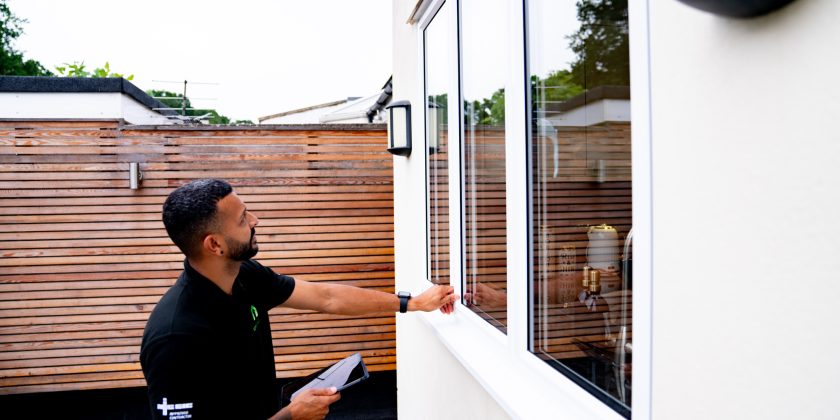An EPC (Energy Performance Certificate) was introduced back in 2007 by the Government as a way to measure how energy efficient peoples homes and business premises are.
You need an EPC if you wish to sell or rent your property, this is a legal requirement.
It provides the owner with a record of the level of energy efficiency and CO2 emissions that are present in the building. The purpose of this is to give any potential buyers, tenants or present owners an insight into how they may be able to reduce their fuel costs and emission levels by simply introducing a few key changes to their property.
The responsibility for the provision of an EPC rests with the owner, seller or landlord.
If selling your home you can market a property without an EPC for up to 28 days, however some estate agents will ask for you to get it done first as they want to include it within their advert. Once an order is placed with us we will send you a confirmation email to show your estate agent in order to begin the marketing.
How is an EPC carried out ?
The EPC is carried out by attending the property and carrying out a non intrusive visual inspection. Whilst on site the energy assessor will be looking at a number of aspects of the property such as:
- windows
- lighting
- boiler insulation
- water tanks
The assessor will take down the necessary data whilst on site and then enter this into the software after the assessment is complete. This will then generate your final EPC
How long does an EPC inspection take ?
The inspection itself will typically take around 20/30 minutes for a residential property. For larger properties this can take longer. You may wish to provide the assessor with any documentation you have that relates to the insulation within your property.
This is often required in order to ensure the epc is as accurate as possible and that no assumptions need to be made.
Can you fail an EPC?
On your EPC you will see your final rating on the first page. You will receive an energy rating from A-G.
- A – being the highest rating you can get
- G – being the lowest
If you are renting the property out you will need to achieve at least an E rating. If an E rating is not achieved you will need to make some changes to the property first of all.
Once these changes have been made you will need to get a new EPC carried out that should achieve at least an E. On your initial EPC you will find some recommended measures that can be taken to improve your rating.
MEES reports
Should you need further advice and guidance though you could purchase a MEES report (Minimum Energy Efficiency Standards). This document will go into more detail than the recommendations on your epc and offer further advice on increasing the EPC rating in the most cost effective way.
What happens once the EPC is done?
All EPC’s are lodged onto the government register (EPC Register) where it will stay and be valid for 10 years. However if you do make any major changes to the property in this time (such as insulation or new windows) a new epc should be carried out as the rating will be affected by those changes.
Do I need a different EPC if it is a New Build?
If your property is a New Build or Recently Converted property you will require a different type of EPC called an “On Construction EPC”. These are often referred to as SAP EPC’s (Standard Assessment Procedure).
These are carried out without having to attend the property, our SAP assessor would require the plans and specifications for the property in order to carry this service out. These plans can often be supplied to us via the architect of builders if you do not have them yourself.
A SAP EPC would typically be required before Building Control can sign the property off.



